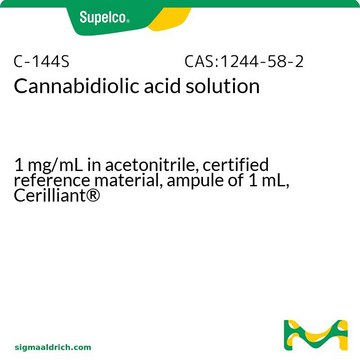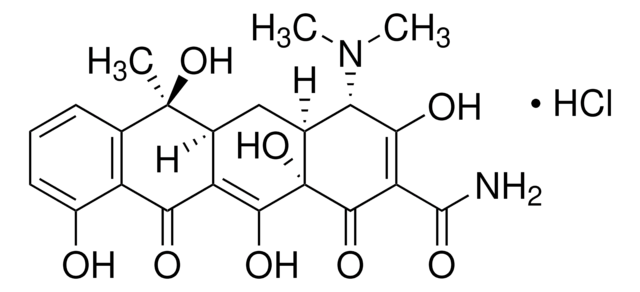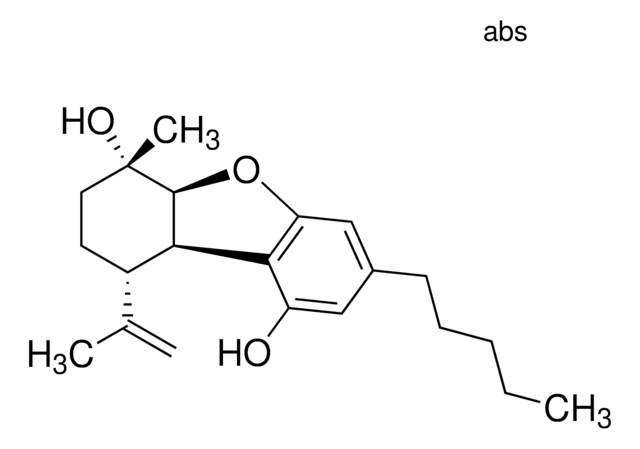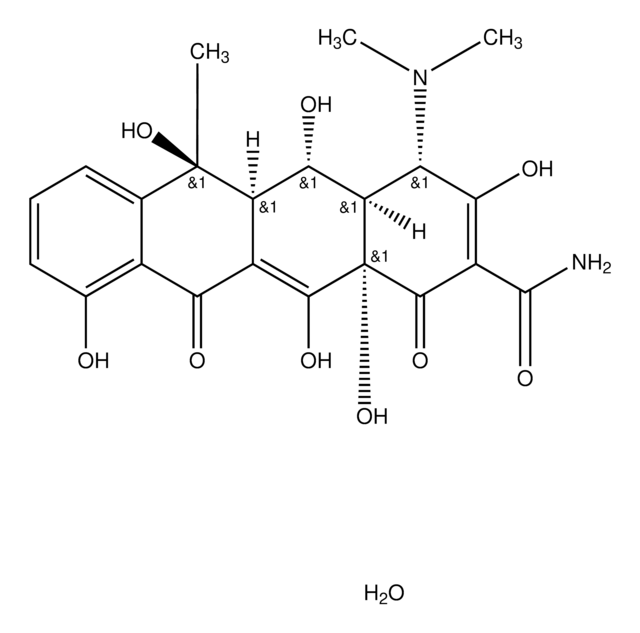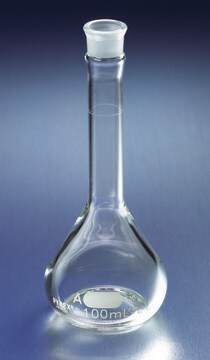C1374
CDK6/CyclinD1, active, His/GST tagged human
PRECISIO® Kinase, recombinant, expressed in baculovirus infected Sf9 cells, ≥70% (SDS-PAGE), buffered aqueous glycerol solution
Sinónimos:
CCND1, Cell division protein kinase 6, BCL1, CDK6, D11S287E, MGC59692, PLSTIRE, PRAD1, U21B31
About This Item
Productos recomendados
recombinant
expressed in baculovirus infected Sf9 cells
Quality Level
product line
PRECISIO® Kinase
assay
≥70% (SDS-PAGE)
form
buffered aqueous glycerol solution
specific activity
7.9-10.7 nmol/min·mg
mol wt
CDK6 subunit ~40 kDa
cyclin D1 ~61 kDa
technique(s)
activity assay: suitable
solubility
soluble
water: soluble
shipped in
dry ice
storage temp.
−70°C
Gene Information
human ... CCND1(595) , CDK6(1021)
General description
This recombinant product was expressed by baculovirus in Sf9 insect cells using an N-terminal His-tag on CDK6, and a GST-tag on Cyclin D1.
Application
Biochem/physiol Actions
Physical form
Legal Information
Storage Class
10 - Combustible liquids
wgk_germany
WGK 1
flash_point_f
Not applicable
flash_point_c
Not applicable
Elija entre una de las versiones más recientes:
Certificados de análisis (COA)
¿No ve la versión correcta?
Si necesita una versión concreta, puede buscar un certificado específico por el número de lote.
¿Ya tiene este producto?
Encuentre la documentación para los productos que ha comprado recientemente en la Biblioteca de documentos.
Nuestro equipo de científicos tiene experiencia en todas las áreas de investigación: Ciencias de la vida, Ciencia de los materiales, Síntesis química, Cromatografía, Analítica y muchas otras.
Póngase en contacto con el Servicio técnico

